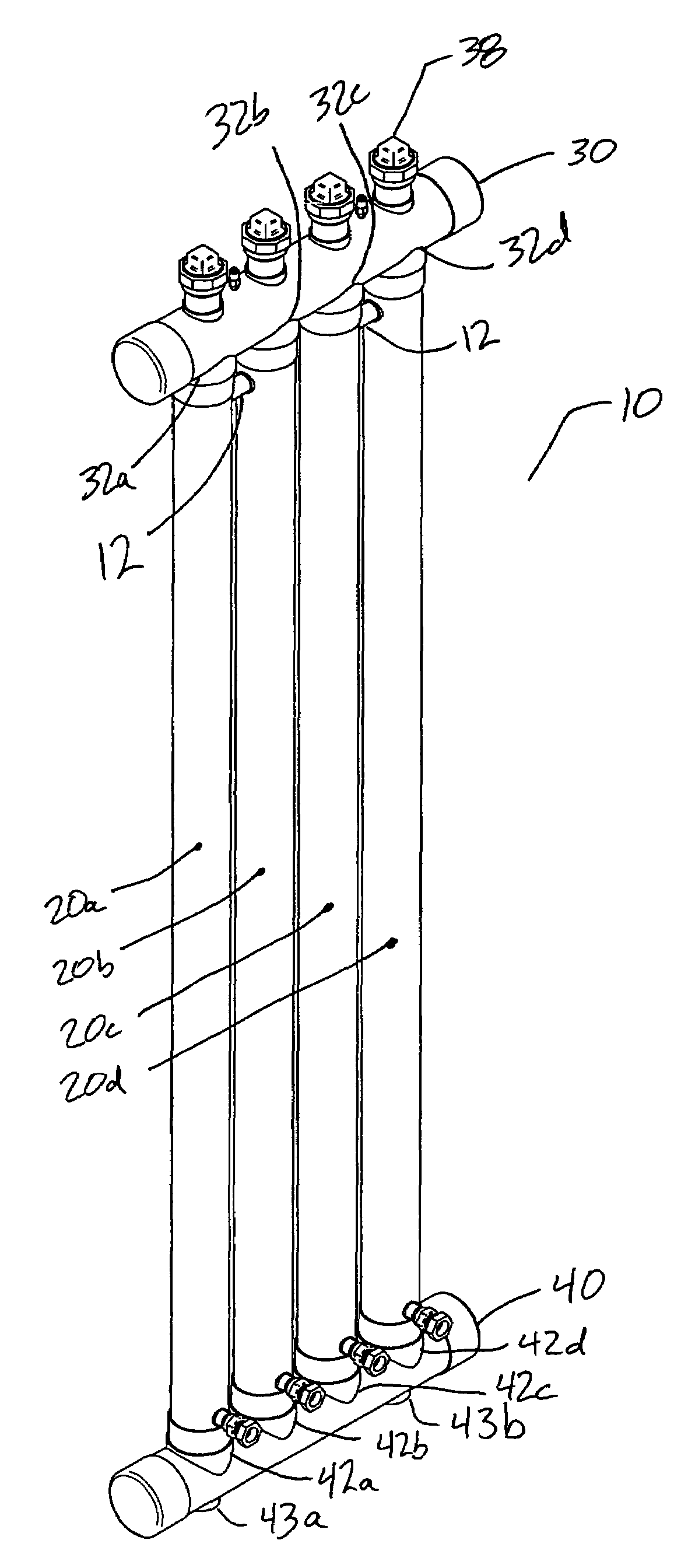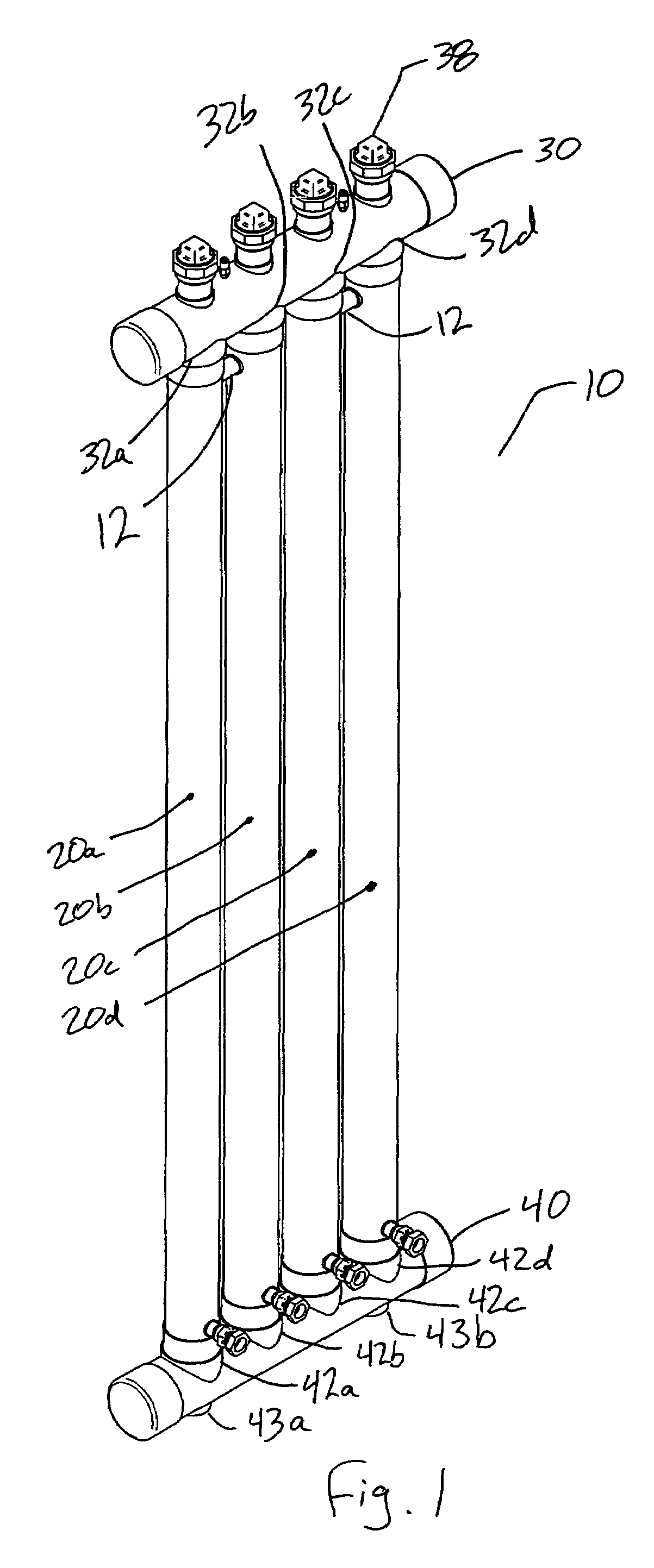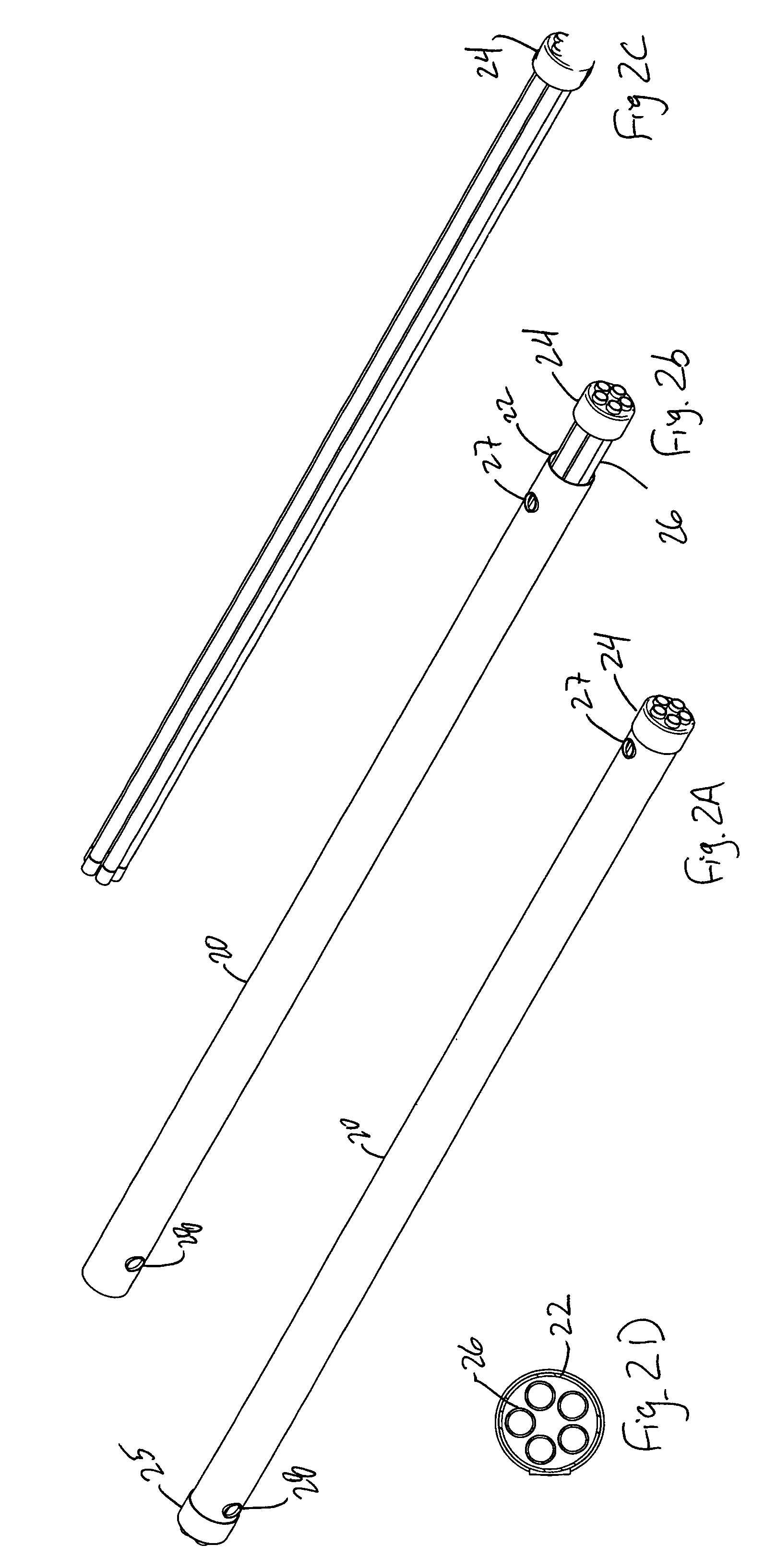Multi-pass parallel-tube heat exchanger
a heat exchanger and parallel tube technology, applied in the direction of fluid pressure control, instruments, immersion heating arrangements, etc., can solve the problems of heat exchanger tubing being clogged, time-consuming and messy, and shell and tube heat exchangers suffer from several drawbacks and limitations, so as to facilitate manufacturing, easy to alter or reconfigure, and easy to clean
- Summary
- Abstract
- Description
- Claims
- Application Information
AI Technical Summary
Benefits of technology
Problems solved by technology
Method used
Image
Examples
Embodiment Construction
[0021]Illustrative embodiments of the invention are described below. In the interest of clarity, not all features of an actual implementation are described in this specification. It will of course be appreciated that in the development of any such actual embodiment, numerous implementation-specific decisions must be made to achieve the developers' specific goals, such as compliance with system-related and business-related constraints, which will vary from one implementation to another. Moreover, it will be appreciated that such a development effort might be complex and time-consuming, but would nevertheless be a routine undertaking for those of ordinary skill in the art having the benefit of this disclosure.
[0022]Turning to the drawings, particularly FIG. 1, a multi-pass parallel-tube heat exchanger 10 constructed in accordance with certain teachings of this disclosure is illustrated. Heat exchanger 10 is formed from a number of shell-tubes 20. Each shell-tube includes an outer shel...
PUM
 Login to View More
Login to View More Abstract
Description
Claims
Application Information
 Login to View More
Login to View More - R&D
- Intellectual Property
- Life Sciences
- Materials
- Tech Scout
- Unparalleled Data Quality
- Higher Quality Content
- 60% Fewer Hallucinations
Browse by: Latest US Patents, China's latest patents, Technical Efficacy Thesaurus, Application Domain, Technology Topic, Popular Technical Reports.
© 2025 PatSnap. All rights reserved.Legal|Privacy policy|Modern Slavery Act Transparency Statement|Sitemap|About US| Contact US: help@patsnap.com



